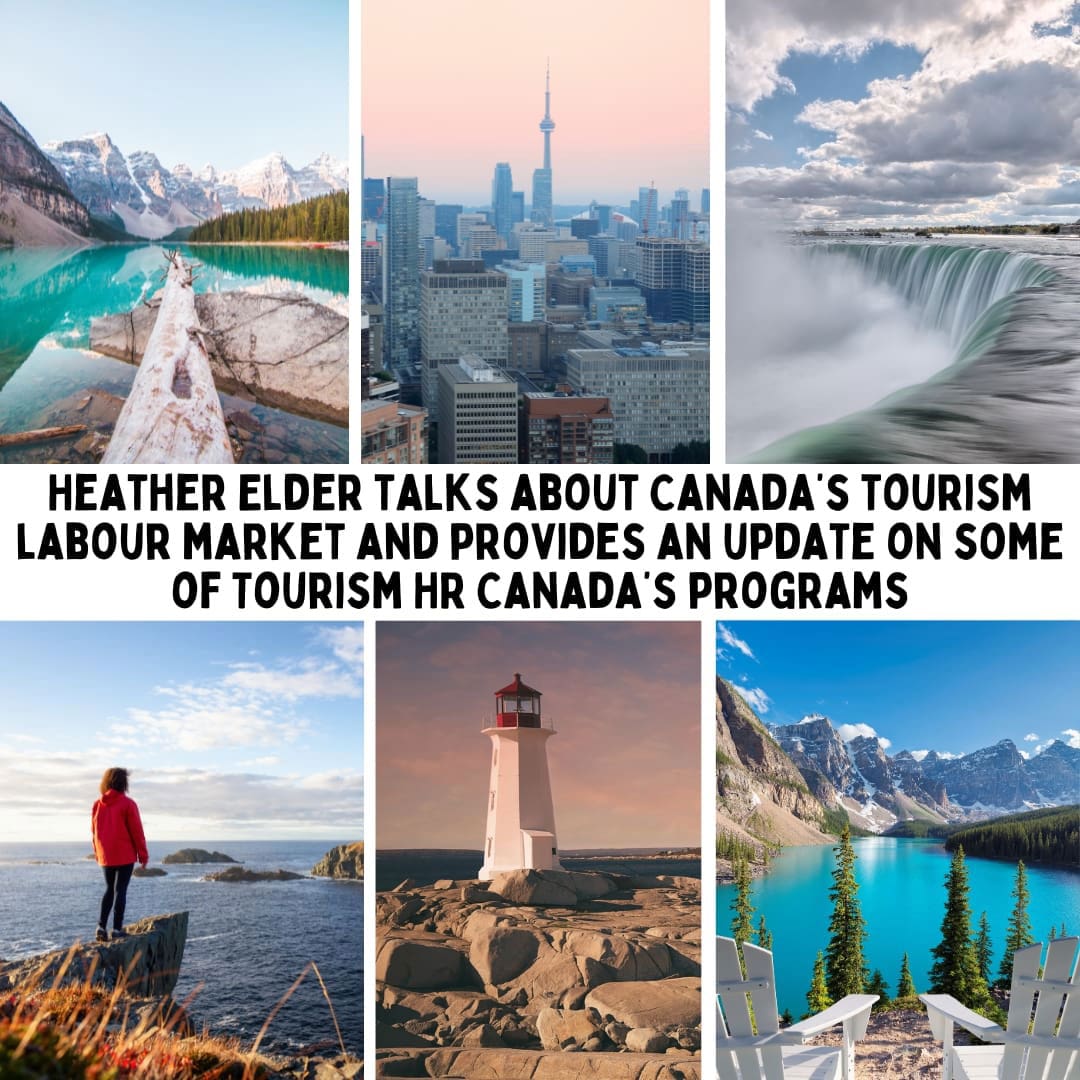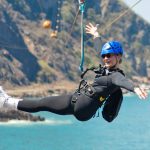
Can we start with an update on Canada’s tourism labour market – is there still a labour shortage? What’s the outlook going forward?
The good news is that the tourism sector as a whole has caught up to where we were pre-pandemic.
In fact, we’re employing slightly more people than we were in 2019. But that doesn’t mean that all industries are in the same boat: hotels and restaurants are continuing to face difficulties in recruiting and retaining top talent.
The recent changes in immigration policy, especially around reductions in temporary international workers, are likely to have an impact this summer.
In particular, the cap on international students is likely to hit our sector hard, since tourism jobs offer the kind of flexibility that many are looking for.
As a follow up, does Tourism HR Canada see the current Canada-US trade war having an impact on the tourism labour market here? Can you offer some insights on what some of those impacts might be?
We do expect an impact, but are uncertain which way things will go: will there be an increase in tourism demand due to domestic and international visitors shifting their travel plans? Will it decrease because travellers choose to stay home for financial reasons?
Tourism may be able to offer jobs to people displaced from sectors that are more directly impacted by tariffs, such as manufacturing or food processing, but that will depend on what happens with tourism demand.
We’ll be watching this closely and providing updates in our monthly labour market snapshots.
I’m hoping that you can offer readers an update on some of Tourism HR Canada’s programs – Emerit Skills Training & Certification; Make Safe; Belong; Canadian Academy of Travel & Tourism; and any others you’d care to mention – what’s new with them?
Emerit is going strong – learners love the increased flexibility of our updated eLearning and certificate options, and we’re seeing lots of interest in the work readiness programs. We’ve also recently launched programming for supervisors and events professionals, and our Make Safe course is helping operators tackle the tricky topic of recognizing harassment and safely intervening.
Belong is making an impact across the country. We’ve been at events sharing best practices and connecting employers and disability inclusion service providers. We’ve launched the Tourism Workplace Accessibility Clinic: a free, tailored service for employers. We’re also offering free eLearning called Navigating Inclusive Tourism Workplaces—all about disability inclusion and accessibility. And we’ve released an in-depth report on disability inclusion in tourism workplaces, from both employer and individual perspectives, along with factsheets to share high-level findings and recommendations.
Our refreshed high school resources, the Canadian Academy of Travel and Tourism, are helping teachers to inspire and inform students on the opportunities available in the industry, and to share just how big an impact tourism has, from the local to the global level. We hope to expand the program in the coming school year.
And I haven’t forgotten Propel which is now entering its fifth year, I believe. Can you talk about the program? What’s it all about? How has it changed and expanded over the years? What’s new in 2025?
We’re excited to watch the growth of the Propel program, especially as this has reflected the recovery of our industry.
Propel is the only Student Work Placement Program dedicated to tourism, hospitality, and travel. It connects post-secondary students who are looking for work-integrated learning placements, like co-ops or internships, and it provides employers with a wage subsidy for each of these placements.
What’s great is that students in any discipline can participate—so it not only inspires students already interested in our industry but also those who might not be aware of the career opportunities available: students in marketing, business, design, IT, HR, and more.
We’ve just released new videos that exemplify this: two students and two employers share their experiences with the Propel program.
I also wanted to ask about Discover Tourism. Can you give our readers an update on how that initiative is going and also what it’s all about? And what’s next for Discover Tourism?
Discover Tourism is the destination for anyone curious about what working in tourism offers. There are inspiring videos from tourism professionals across the country, quizzes to identify what jobs might be a good fit, career pathways to explore where that entry-level job can lead, and lots of links to job boards, post-secondary programs, scholarships, webinars, and more.
Plus: it offers lots of HR tips, checklists, and resources for employers of all shapes and sizes. Coming up, we’ll be adding disability inclusion resources from our Belong project and expanding on the careers we feature.
Has Tourism HR Canada introduced any new programs? Or is it planning to introduce new programs in 2025? If so, can you give readers an idea of what to look out for from Tourism HR Canada?
We’re partway through filming a suite of videos showcasing stories from individuals with disabilities working in tourism and from inclusive employers. They’re amazing; we can’t wait to share them. We’re also working on a disability inclusion toolkit for employers, and an accreditation program that will recognize accessible employers.
New eLearning for food and beverage service is in development, and we’re adding new competencies to our Workforce Management Engine—this free online portal hosts the tourism competency framework and lots of interactive tools to help with skills development and HR planning.
And we’ve got a new website in the works! We offer so many programs, services, information, and resources, and we want to be sure our visitors can find what’s of interest to them quickly—while keeping it stylish and accessible, of course.
Backing up a bit, can you give us a quick overview of what Tourism HR Canada does… what’s its mission, so to speak? And, how its programs can help students, educators, employees and employers?
We’re a pan-Canadian not-for-profit organization whose mandate is to build a world-leading tourism workforce.
We are what’s called a workforce development council: we create and coordinate a wide mix of resources and activities to support skills development, increase career awareness, help with staff attraction and retention, and encourage diversity and inclusion.
We’re also the trusted source for tourism labour market intelligence: who’s working in the sector, where the jobs are, what skills are needed, and how we can create a competitive compensation culture.
I’m wondering if there’s a question that I haven’t asked you that I should have asked you? If there is, what’s the question and what’s the answer?
Maybe where to learn more about any of the above? Our website, TourismHR.ca, highlights all these and more, and the Tourism HR Insider newsletter is the best way to keep up to date on the latest insights, plus opportunities to get involved. We also feature curated news and events.
Last question… we’re living in uncertain and unsettled times … and I’m wondering what Tourism HR Canada’s advice would be to a young person considering a career in Canada’s tourism industry? And how Tourism HR Canada can help them succeed in their pursuit of a career in the tourism industry?
Tourism’s been through rough patches before, but it always comes back stronger. That desire to travel, to connect with others, to seek out new experiences — it’s a part of us.
In a human-centred industry like tourism, there’s always going to be opportunities for individuals who love to share their culture, their history, their food, their environment, while making people feel welcome and safe.
Plus, with so much innovation happening around sustainable and regenerative travel and with tech and AI, there’s ample opportunity for anyone to forge their own path in tourism.
Have a look through Discover Tourism for inspiration and action, Emerit for skills development, and our labour market intelligence for trends and strategic planning. We’re here to help.

















